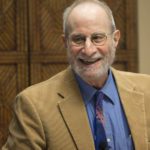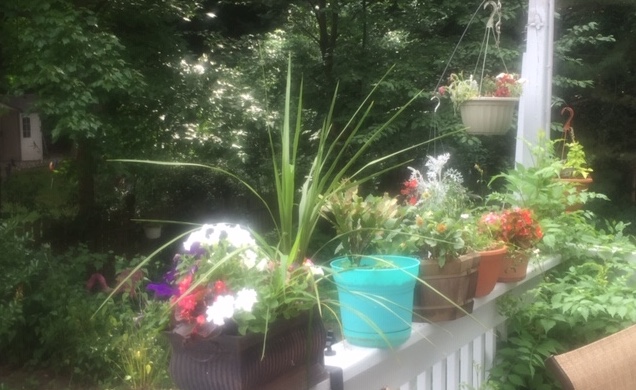By Dr. Joseph Chuman

These are times that try people’s souls; it’s a metaphor from a different time but perhaps an apt description of our own. Between a global plague, economic devastation, and a surreal and menacing political environment, we are being tested as perhaps never before.
Speaking to others, they feel it emotionally, psychologically, almost viscerally. Without much introspection, I know that I am also affected. One manifestation of the discomfort is my changed relation to work and how it is subjectively perceived. I have always worked hard. I work in four venues, two Ethical Societies (Bergen by far the larger) and two universities. In great measure I have been fortunate in that I have been able to fashion my own projects and make my own hours. But this freelance environment is not totally unbounded. There are platform addresses to be delivered at specific hours, scheduled committee meetings, classes to be taught at designated times. Each professional venue spins off a proliferating blunderbuss of tasks replete with deadlines, often requiring preparation. As in any profession, I have responsibilities and duties that frame what I must do. And as an Ethical leader, I need to be sensitive to the pulse of the community and be responsive to its members. Despite the relative openness of my work life, there are also fixed points and boundaries that come with it. I often get into my car and commute from here to there. Meetings are humanized and softened by chitchat before and after. I can feel the presence of others.
Seamless spindle of one thing after another
Covid-19 has changed this. Whatever structure my work life claimed, whatever boundaries gave it structure, are now greatly gone. They are replaced by a plethora of Zoom meetings, the novelty of which has worn off, a deluge of endless emails chaining me to my computer, longer telephone calls that fill in the gaps of time. In short, work not only feels demanding but relentless. Time feels undifferentiated and has melded into a gray, seamless, rolling spindle of one thing after another. It is beginning to feel merciless. While always working hard, I’ve been able to physically and mentally structure my life to feel in control, which is a foundation for work’s satisfaction. This capacity is breaking down.

I am not the only one to feel this way. As the pandemic continues to keep us at a distance and prevailingly alone, others have shared with me the same complaint. It challenges those so experiencing these changes to develop new habits of mind and new personal practices. I have to punctuate the seamlessness of time by cultivating joy from small things in my environment. My home and backyard now comprise, in great measure, my world. I have planted numerous flowers and my garden of perennial plants in flourishing as never before. I have become accustomed to saying that this summer it is the only show in town. Their beauty lifts my spirits. I like writing and have used the Society’s private Facebook page to compose short essays, some of which I have turned into op-ed pieces, (which have reached millions, or so I believe). I have made extra effort to connect with my children and grandchildren.
For me, my humanism is such that my most coveted experiences are to spend time with those whom I care most about and care about me in face to face relations, sharing interiorities and thoughts about the world. Despite the technological wizardry, I find that pixilated communication, however wide and plentiful, is no substitute for the real thing. Perhaps you do, too.
Keeping our eyes on the science
At the Society, we have a task force that is responsibly and meticulously discussing how we are going to progressively open the Society as the environment becomes relatively safer, while always keeping our eyes on the science and adjusting to retain maximal safety. Our maximal safety. Our Phase I will be to use the summer to have small outdoor gatherings hosted mostly by members, while keeping security measures in place. Perhaps you will choose to take advantage of these opportunities after months of quarantining. When it comes to social engagement, it will not be perfect, but we do what we can. I am looking forward to it.
Summer is here. It is usually a time to put work aside and become carefree. But this summer will be different. I wish you a happy summer, but realist that I am, I am not glib about it. I know that this summer will be challenging, hemmed in by the constraints of the conditions that confront us.
The Italian philosopher Nicolo Macchiavelli, in the 16th century at the very dawn of the modern age, observed that the human condition is such that we experience both fate imposed on us from the outside and our will, with which we can act upon our fate. Perhaps the plague that came out of nowhere reminds us that however triumphant we imagine ourselves to be, we are still the object of greater realities we cannot fully control. There is something, I believe, humbling in that realization. But Machiavelli also believed that by harnessing our powers of forethought we can to some degree bend our fate and gain at least partial mastery over it.
This will be our challenge for the summer and for some time beyond, though we do not know for how long. But one day we will walk into a new dawn. And so, yes, I do wish you a good summer.
Dr. Joseph Chuman is leader of the Ethical Culture Society of Bergen County.
